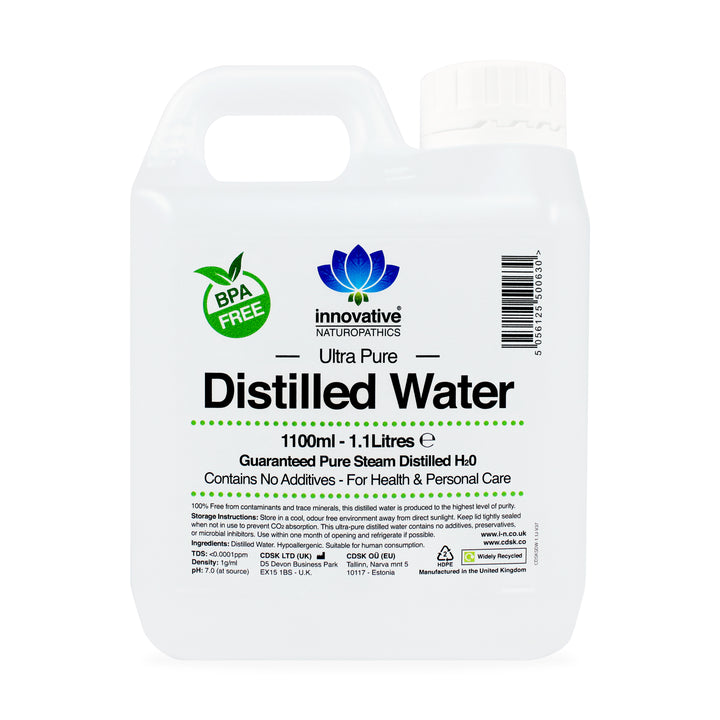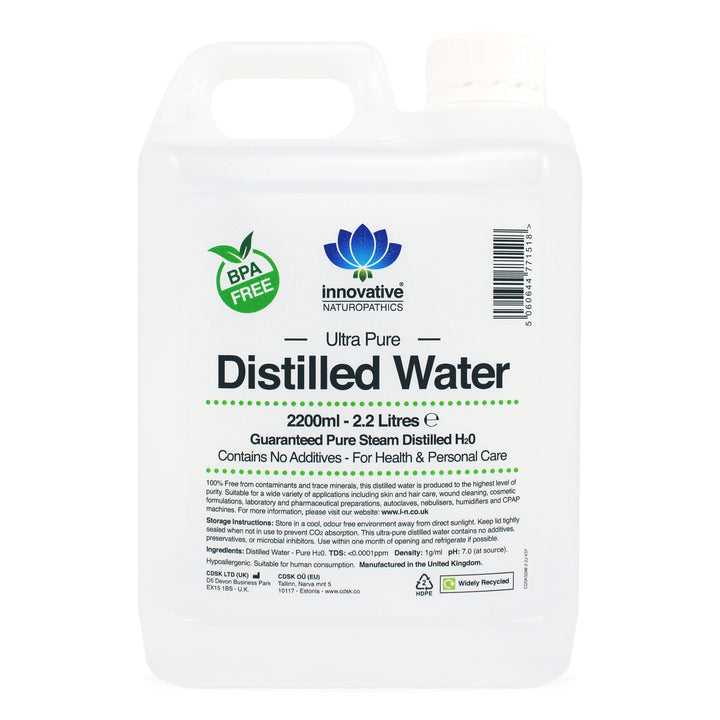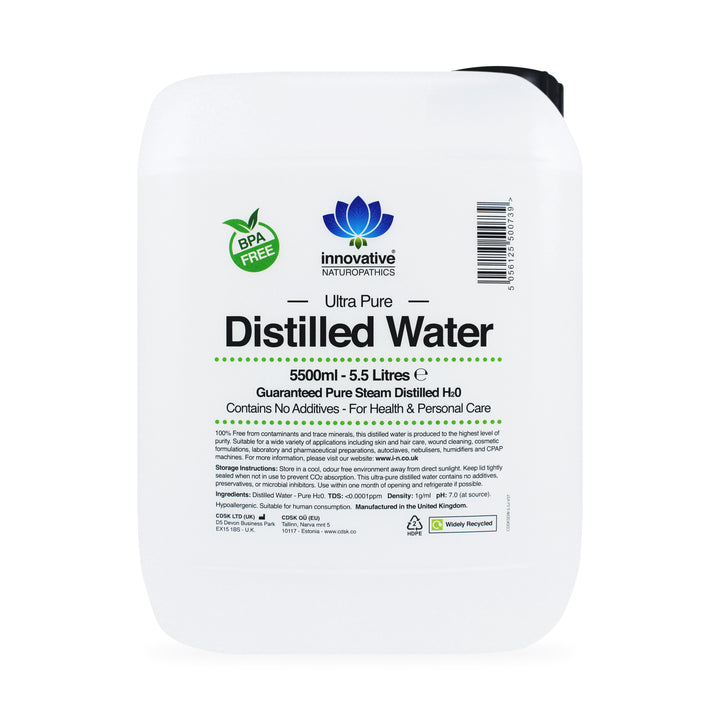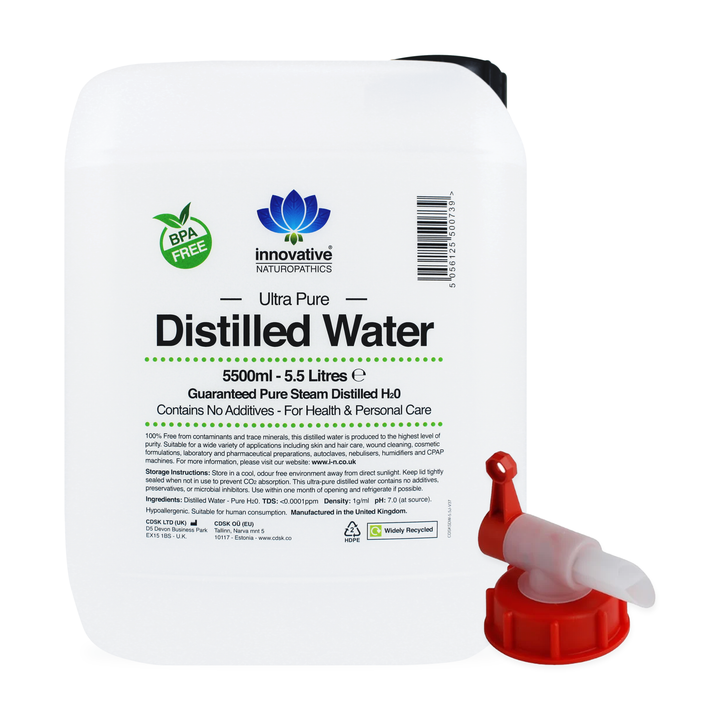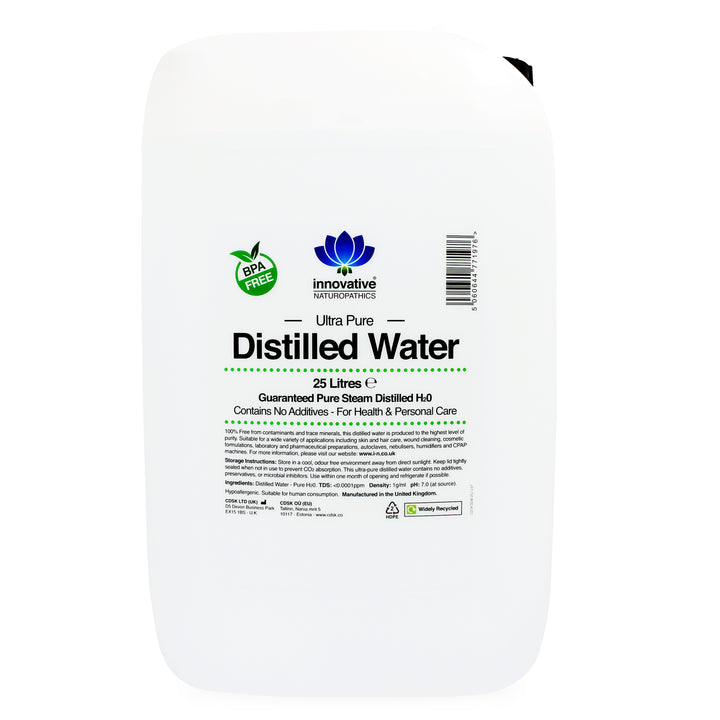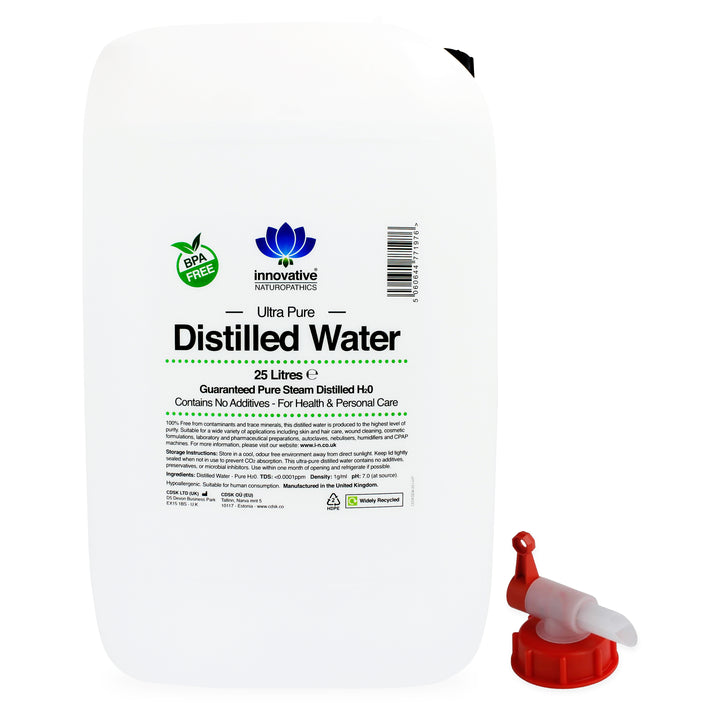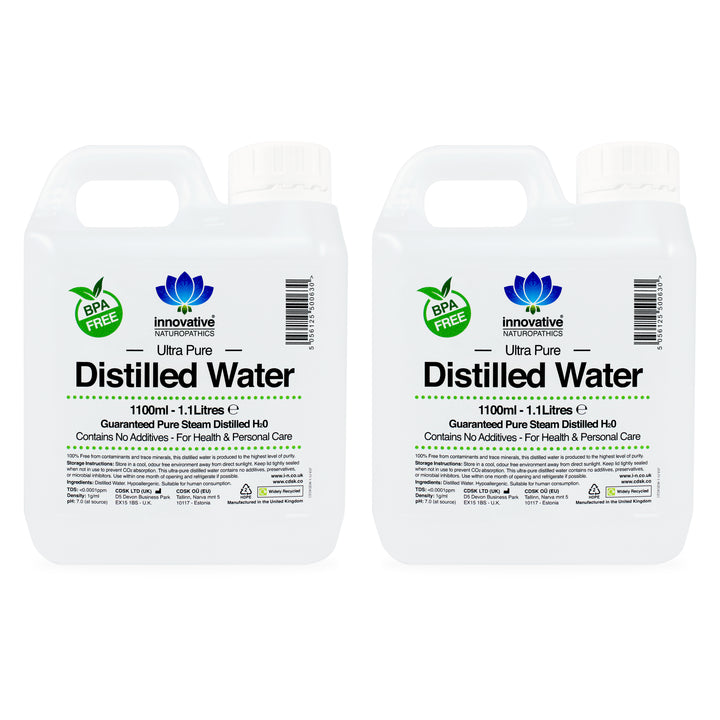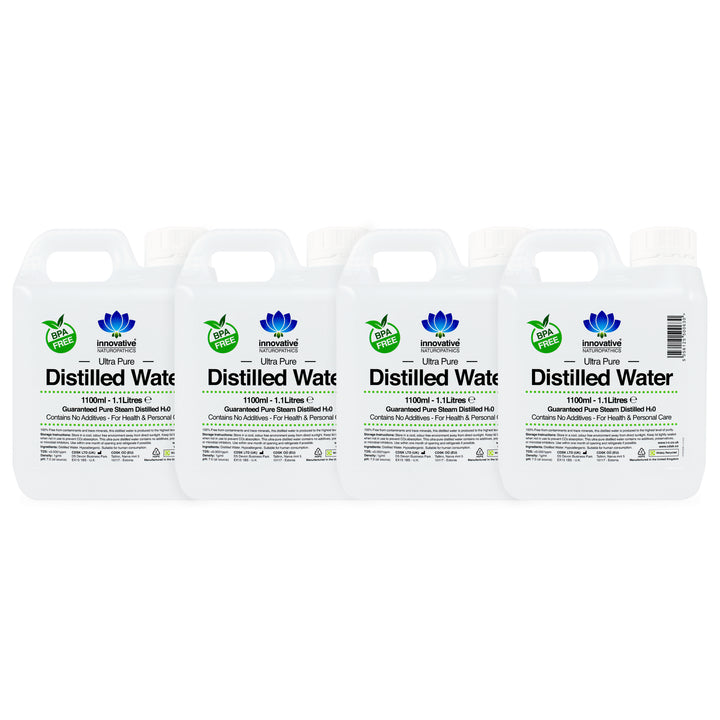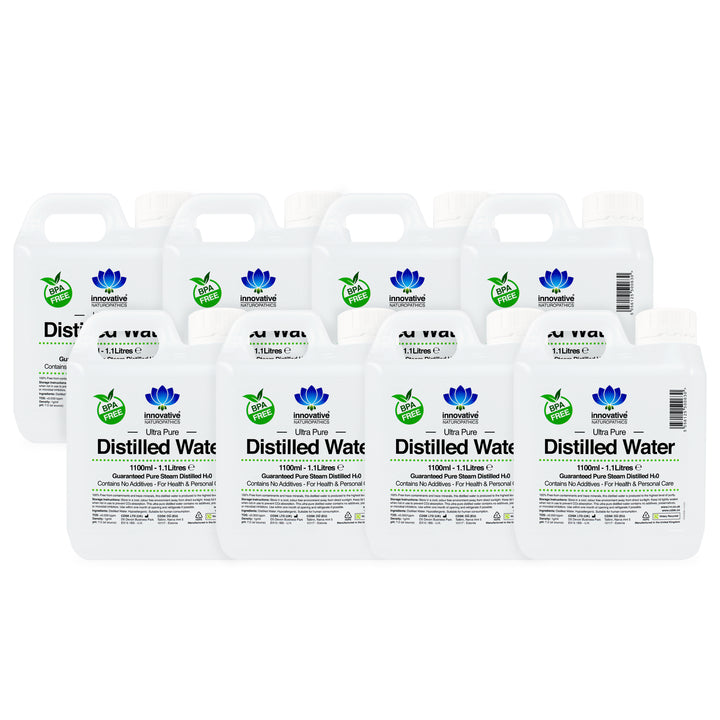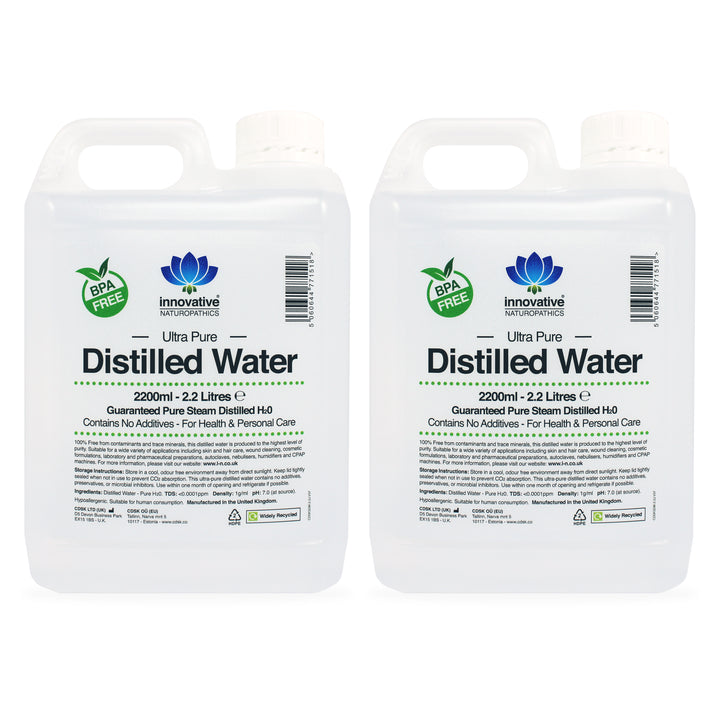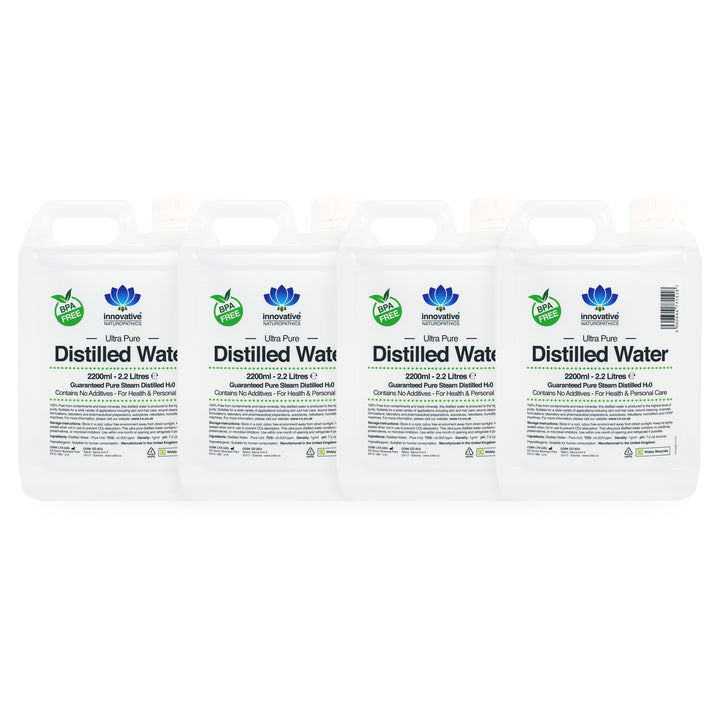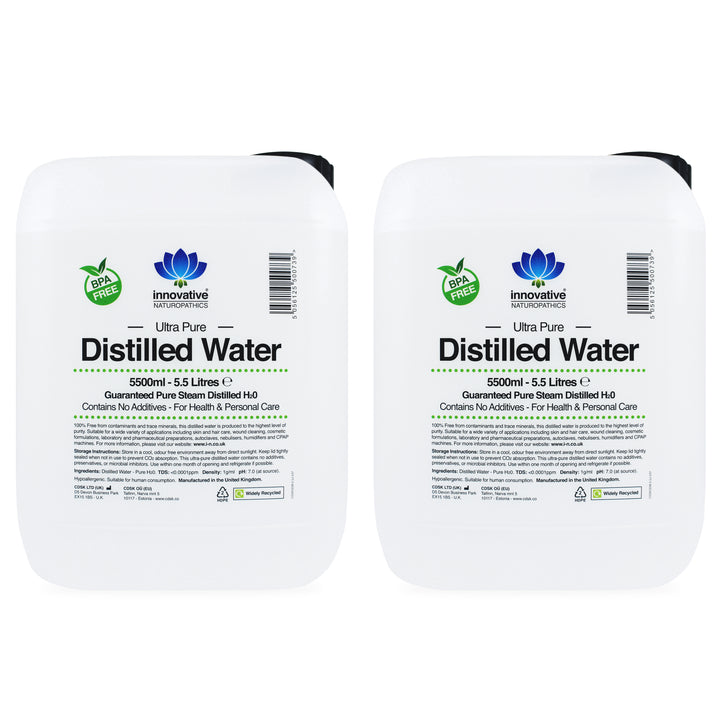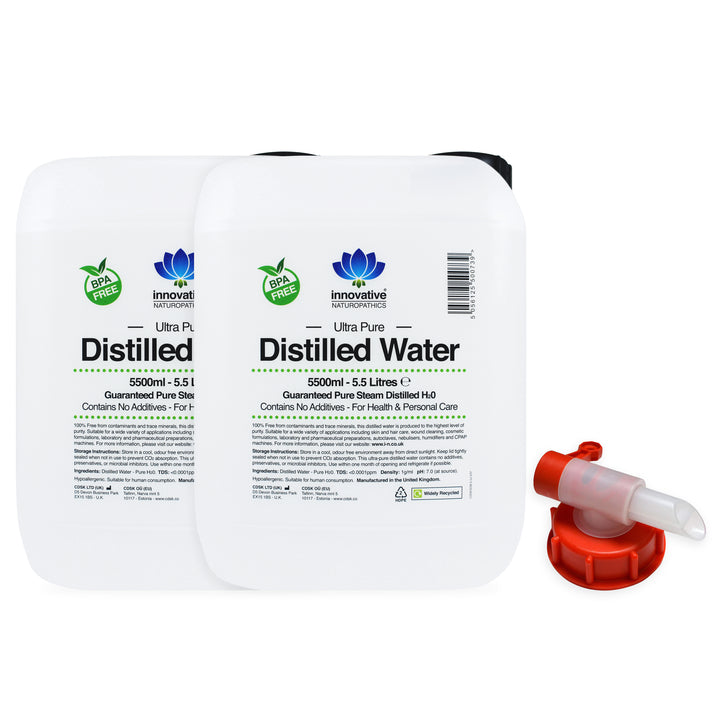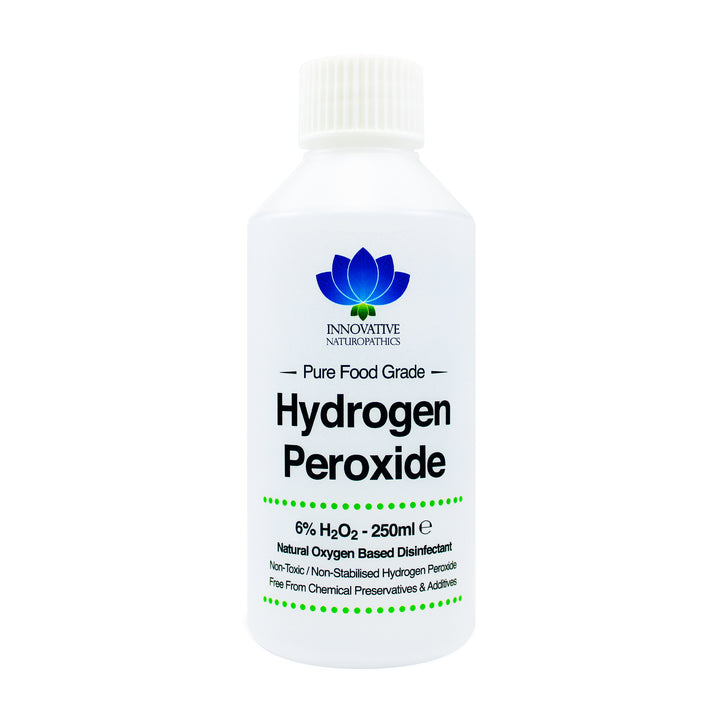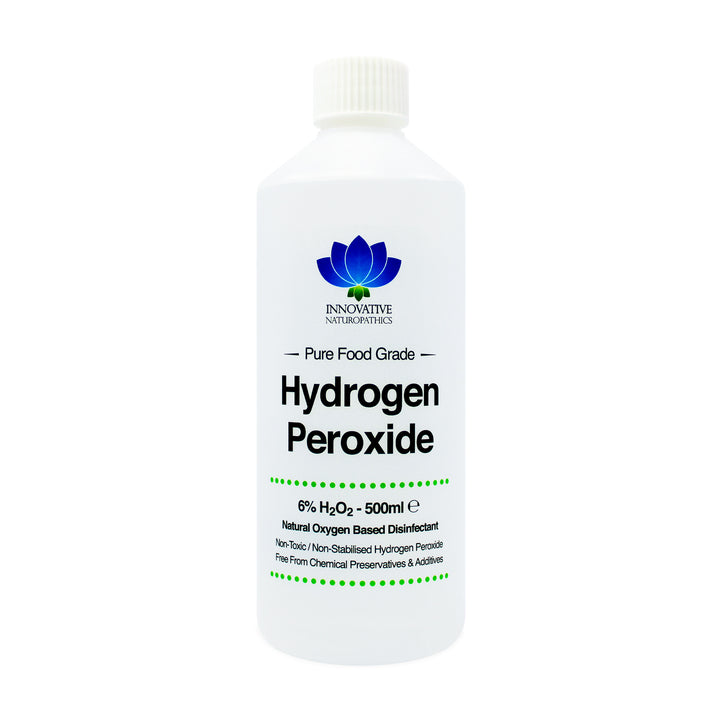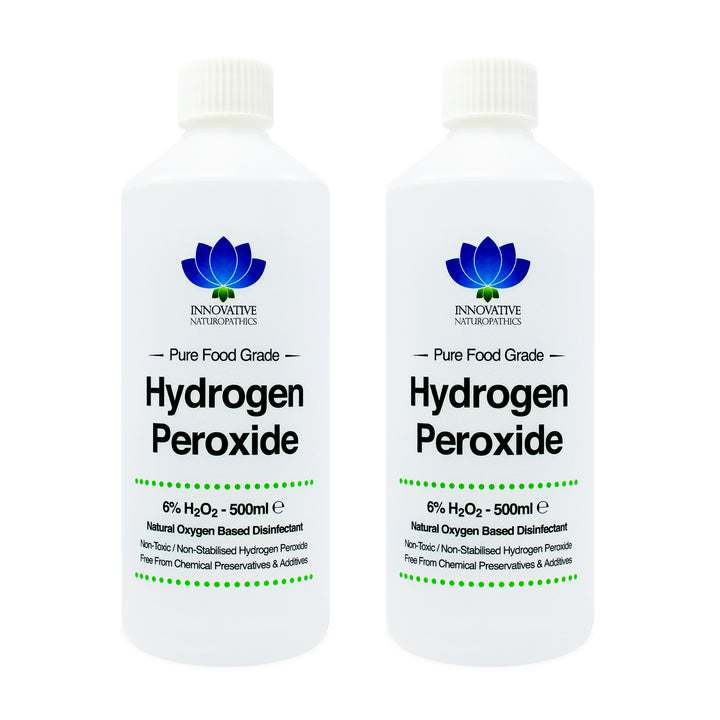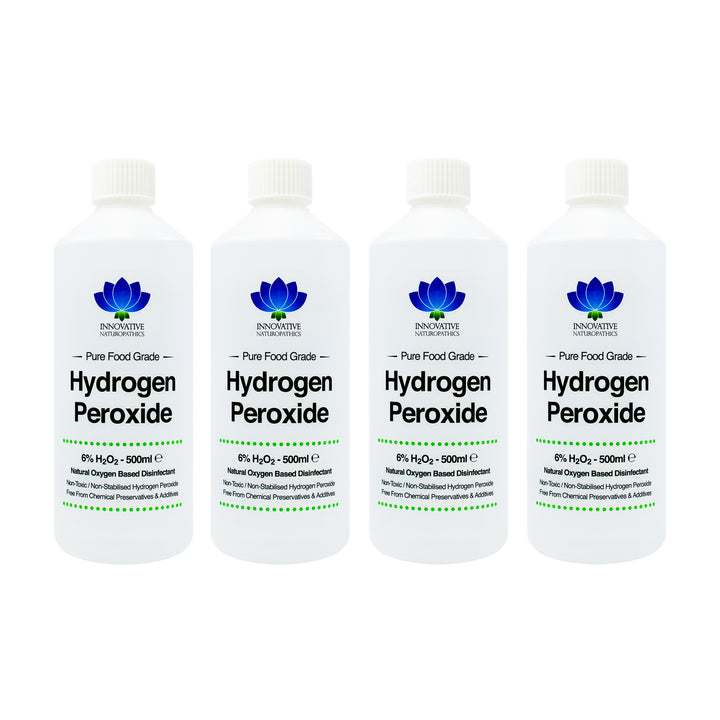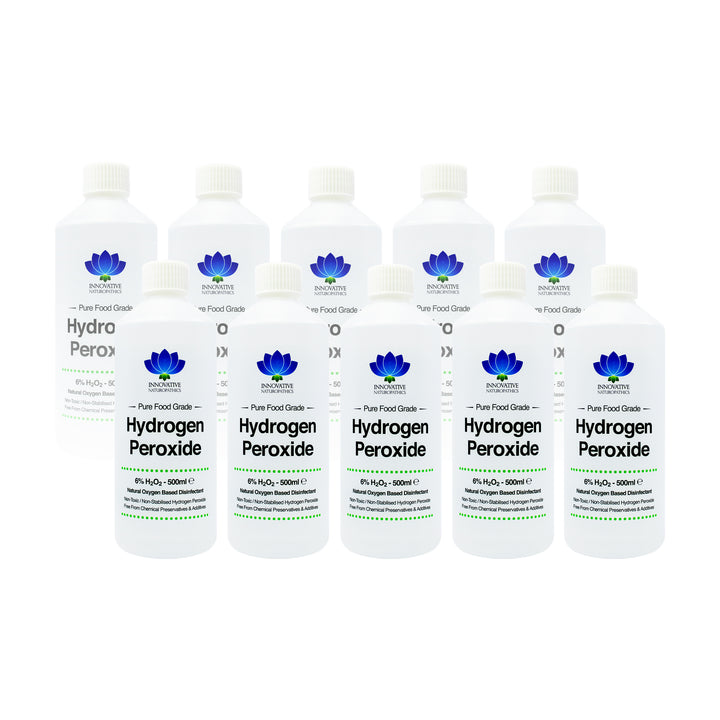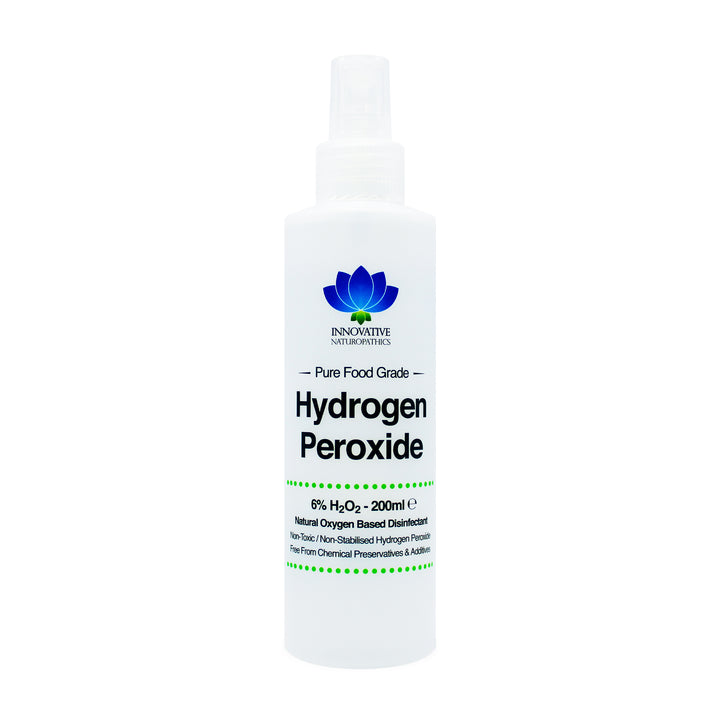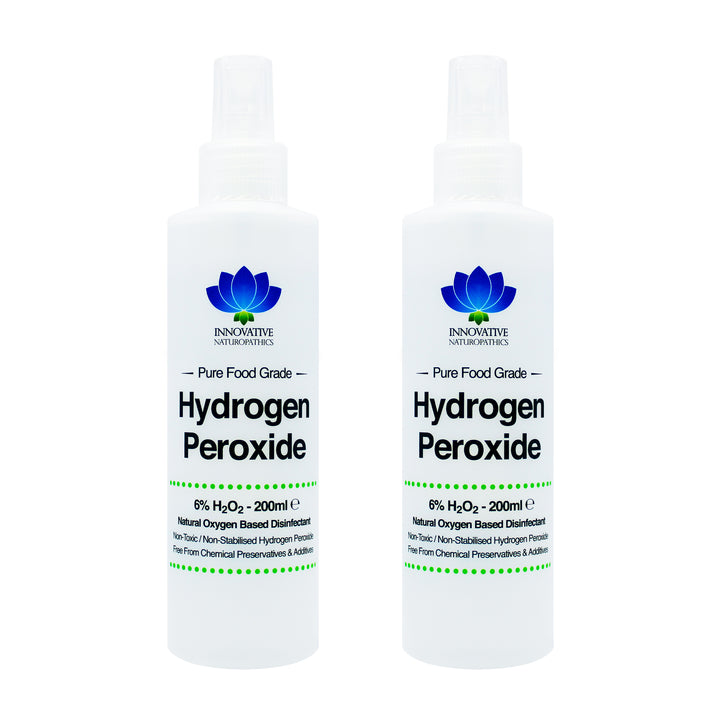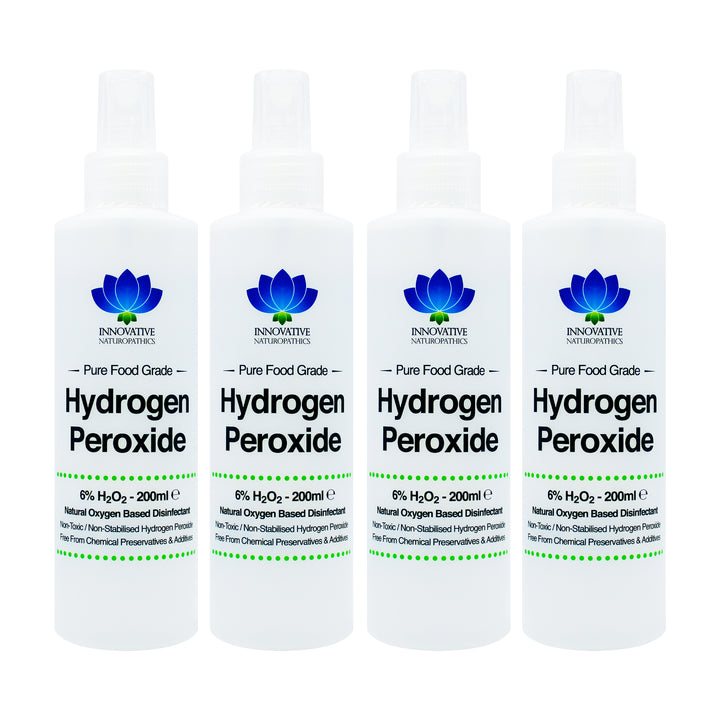Ultra Pure Steam Distilled Water
Discover the Purity of Steam Distilled Water
When purity matters, nothing compares to our steam distilled water. Free from minerals, microbes, and contaminants, it’s produced to meet the most demanding standards. Available in a variety of container sizes, our products offer exceptional quality and convenience for every application, from personal care to professional use
Distilled Water Information and Frequently Asked Questions
What is Distilled Water?
Steam distilled water is a form of highly purified water that is produced through a process of heating, evaporation, and condensation. The process begins by heating water until it reaches its boiling point and transforms into water vapour, or steam. The intense heat and pressure destroy harmful microbes. As the steam rises, it leaves behind contaminants such as dissolved salts, heavy metals, and other non-volatile impurities that do not evaporate. The steam is then cooled and condensed back into liquid form, and the water is collected in a separate vessel. The result is ultra-pure water, free from biological and chemical contaminants.
Steam distillation mimics the natural hydrologic cycle, which is nature’s method for purifying water into fresh drinking water. As our sun gently warms our planet, water evaporates into vapour and rises high up into our atmosphere. As it rises, it begins to cool down, condensing and forming rainclouds. Eventually the water falls back to Earth as fresh rainwater. This process is essential to nourish and sustain life on our planet. Although rainwater results from a natural distillation-like process, it is not a reliable source of pure water due to atmospheric contamination. As clouds form, water vapour absorbs airborne pollutants from the atmosphere. In extreme cases it can lead to phenomena such as acid rain.
What are the Benefits of Distilled Water?
Put very simply, the key benefit of steam distilled water compared to other purification methods is its exceptional level of purity. When evaluating water purity, two main factors are considered: microbial purity and chemical purity. Although steam distillation is an energy-intensive process, it is highly effective and often regarded as superior to other purification methods for several reasons. It achieves both forms of purity, microbes are eliminated through boiling, and chemical contaminants are separated during evaporation and condensation.
Most other methods are normally effective for either microbial or chemical purity but rarely both. For instance, UV sterilisation and chemical disinfection are excellent for killing microorganisms but do not remove chemical pollutants. Similarly, while boiling water kills most pathogens, it actually concentrates dissolved contaminants as the water volume decreases. Filtration methods such as activated carbon or ceramic filters can remove many impurities but will not eliminate viruses or dissolved salts. Reverse osmosis is often considered the next-best method. It is highly effective at removing salts, heavy metals, chemicals, and most microbes. However, it typically wastes significant amounts of water and does not reliably remove viruses without additional treatment.
TDS and pH
TDS stands for Total Dissolved Solids. It is a measurement of the amount of substances dissolved in water and is normally measured in parts per million (PPM) or milligrams per litre (mg/L). TDS meters can estimate the total dissolved solids in a solution by checking its electrical conductivity.
pH stands for power (or potential) of Hydrogen. It is a measurement of how alkaline or acidic a substance is. It is measured on a scale of 0 to 14 with 7 being a neutral pH (neither acidic nor alkaline). Substances with a pH of 6.9 or less are acidic and substances with a pH of 7.1 or higher are alkaline. pH can be tested with pH strips or digital pH meters.
At source, distilled water should contain 0ppm of dissolved solids and have a neutral pH of 7 indicating its purity.
Interestingly, distilled water (H2O) is a exceptionally effective solvent. A solvent is simply a substance which dissolves other substances to form a solution. As distilled water contains no dissolved solids, it readily dissolves soluble substances. This is a key consideration when measuring the TDS and pH of distilled water.
At the point of production, distilled water has a pH of 7 and 0 TDS. However, due to its purity and powerful solvent properties, it begins to absorb carbon dioxide (CO2) from the air almost immediately upon exposure. The CO2 reacts with water (H2O) to form carbonic acid (H2CO3). This results in a slight decrease in pH to around 5.5 to 6.5 and can increase TDS marginally.
For this reason, proper storage is essential to maintain the purity of distilled water.
We take the utmost care to ensure air exposure is kept to an absolute minimum during the production and bottling process. However, once a container is opened, CO2 absorption will inevitably occur. While this is not harmful, it is important to be aware of, especially in applications requiring strict control of water purity.
Is it Safe to Drink Distilled Water?
Distilled water is generally safe to drink, provided it has been produced specifically for human consumption. However, because it lacks essential minerals such as magnesium, calcium, and potassium, it is not typically recommended as a long-term drinking water source, unless your diet or supplements provide sufficient mineral intake.
That said, there are some positives to drinking distilled water. It can help to reduce exposure to toxic heavy metals, harmful chemicals and other contaminants, particularly in in areas with polluted drinking water. Distilled water may also be beneficial for people with weakened immune systems, chemical sensitivities or certain kidney issues where mineral intake must be carefully regulated.
In emergency situations or specific medical scenarios, drinking distilled water can be beneficial. However, for everyday use, a balanced, mineral rich water is generally the better choice for supporting optimal health and wellbeing.
Deionised vs Distilled Water
A surprisingly common misconception is that deionised and distilled water are essentially the same thing. While both have undergone a type of purification, deionised water is primarily suited to industrial and technical applications processes. It lacks the purity required for personal care, cosmetic and health applications. Deionised water is simply water that has been passed through an ion exchanger, which removes charged ions. This removes salts like magnesium, calcium and iron and most minerals but does not remove organic compounds, microorganisms and some chemicals. When purity is critical, distilled water is always the better option.
Uses for Distilled Water
Distilled water has a wide range of applications, particularly when purity is a concern. Some of the common uses include:
CPAP Machines - CPAP (Continuous Positive Airway Pressure) machines require clean, sterile, mineral-free water to function effectively. Most manufacturers recommend using distilled water, as tap water contains minerals that can accumulate over time, forming hard-to-remove deposits. These deposits may damage the humidifier, reduce performance, and potentially void the warranty. Using distilled water helps protect the machine, maintain optimal performance, and extend its lifespan.
Diluting Hydrogen Peroxide - Hydrogen peroxide should only ever be diluted with clean, stable and contaminant free water, making distilled water the perfect choice. Tap and bottled water often contain minerals and impurities that can react with hydrogen peroxide, potentially causing unwanted chemical reactions and reducing its potency.
Cosmetic Formulations - Pure distilled water provides a neutral and stable base for cosmetic preparations. As water is often the primary ingredient in skincare and beauty products, using distilled water ensures that no trace minerals or contaminants interfere with active ingredients, providing consistent results.
Wound Cleaning - When saline or other sterile solutions are not available, distilled water is a great alternative. Unlike tap water, which may contain harmful microbes, chemicals, and minerals that can irritate the skin or interfere with healing, distilled water is free from these impurities. Its clean, gentle nature makes it suitable for rinsing cuts, scrapes, and minor wounds, helping to reduce the risk of infection and promote a safer healing process.
Facial Steamers - Facial steamers gently release warm mist to open pores, loosen dirt and oils, and soften makeup residue, making water quality especially important. Distilled water is free from impurities that can irritate the skin, making it the ideal effective steaming experience. Additionally, many manufacturers recommend using only distilled water to prevent mineral buildup, which can damage the device and reduce its performance over time.
Autoclaves & Laboratory Equipment – For consistent performance, distilled water is the standard choice in laboratory and clinical environments because it contains no minerals, ions, or impurities that could damage sensitive lab equipment.
Aquariums - Distilled water is completely free from minerals, chlorine, and other impurities, making it an ideal starting point for aquarium use. However, because it lacks any mineral content which is required for optimal fish and plant health, it should never be used on its own in a stocked tank. Distilled water can be remineralised to your exact specification for marine or freshwater aquaria to create the ideal conditions for sensitive species. Distilled water is particularly useful for topping off evaporated water.
Automotive – Distilled water can be used to top up lead-acid car batteries. Using unpure water may introduce unwanted minerals or ions that can reduce battery lifespan or cause irreversible damage. Distilled water is also a great choice for making your own windscreen washer fluids, as it prevents streaks caused my mineral residue on glass.
Storage of Distilled Water
Distilled water should be stored only in suitable containers, in a cool odour free environment, out of direct sunlight. To maintain its purity, always keep the lid tightly sealed when not in use to prevent contamination and the absorption of carbon dioxide, which can alter its pH. Although distilled water is chemically stable, it’s best to use it within one month of opening though this isn't always strictly necessary. Because it contains no preservatives or microbial inhibitors, refrigeration after opening is recommended whenever possible to reduce the risk of bacterial growth. If you notice anything unusual with your distilled water, such as an odour, discolouration, or cloudiness you should discard the distilled water immediately as it may be contaminated.
Theoretically, distilled water can be stored indefinitely because it is chemically stable, sterile and free from contaminants. In practice, this is not realistic.
There are three main challenges when storing distilled water, container degradation, CO2 absorption and microbial contamination. If unopened distilled water can last for many years but as soon as it is opened, the storage life is reduced to approximately one month.
Our entire range of pure distilled water products are packaged exclusively in high-density polyethylene (HDPE) containers, an ideal material for preserving water purity. HDPE is highly chemical-resistant, non-leaching, and has exceptionally low gas permeability. These qualities prevent odours from tainting the water and significantly reduce the absorption of carbon dioxide, helping to maintain stable pH and purity over time. In addition to being easily recyclable, HDPE containers are extremely durable and can last over 10 years without showing signs of degradation. As a result, container integrity is not a concern with our distilled water products.
It is always recommended to handle your distilled water with care and attention to ensure it does not become contaminated. Because it contains no preservatives or microbial inhibitors, there’s nothing to stop microorganisms from growing if introduced. That said, distilled water is generally a hostile environment for microbial growth, as it lacks the minerals and nutrients that microbes need to thrive.
If you have any questions not covered in this article, please contact us and we will be happy to help.


